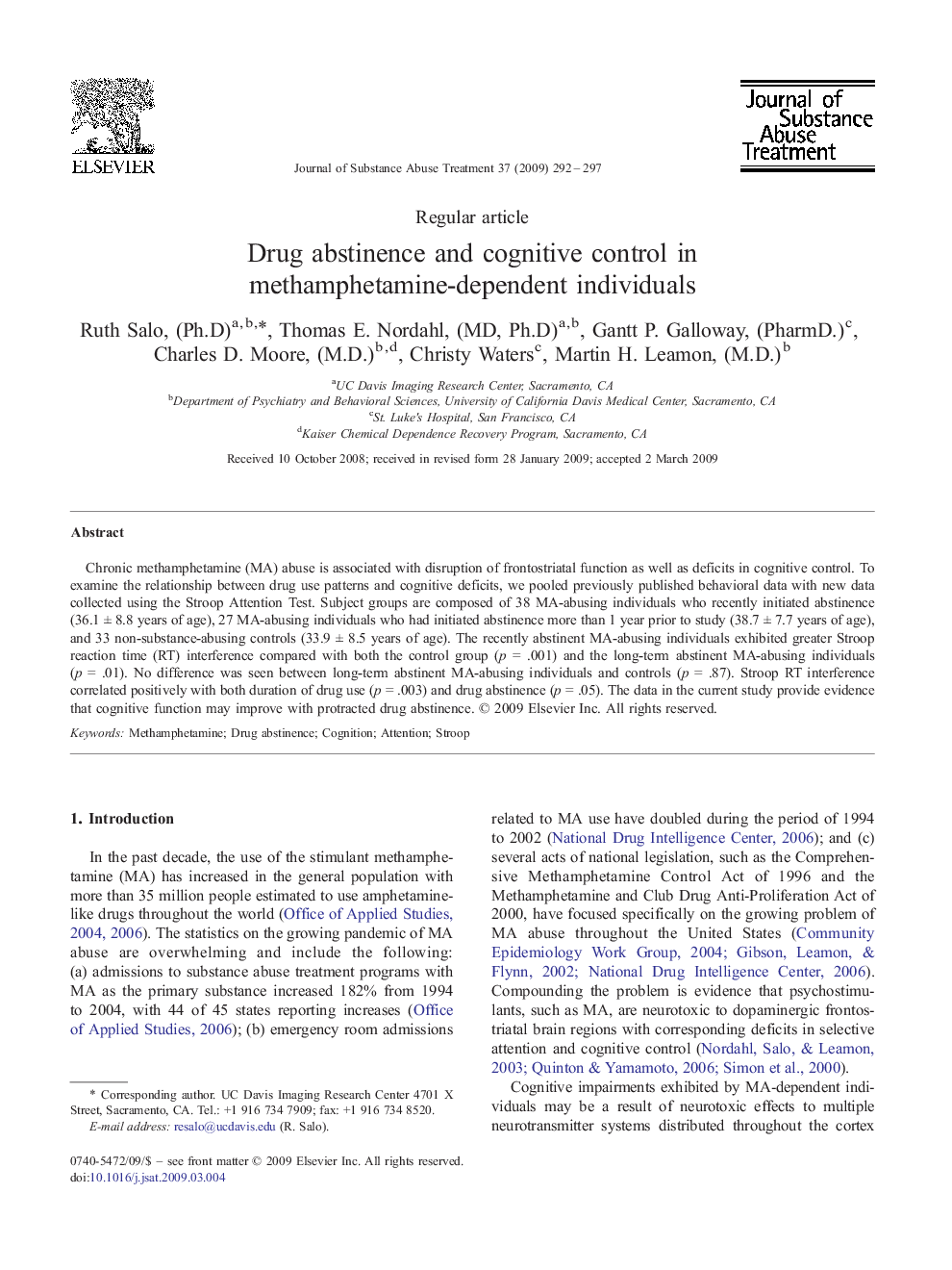| Article ID | Journal | Published Year | Pages | File Type |
|---|---|---|---|---|
| 329198 | Journal of Substance Abuse Treatment | 2009 | 6 Pages |
Chronic methamphetamine (MA) abuse is associated with disruption of frontostriatal function as well as deficits in cognitive control. To examine the relationship between drug use patterns and cognitive deficits, we pooled previously published behavioral data with new data collected using the Stroop Attention Test. Subject groups are composed of 38 MA-abusing individuals who recently initiated abstinence (36.1 ± 8.8 years of age), 27 MA-abusing individuals who had initiated abstinence more than 1 year prior to study (38.7 ± 7.7 years of age), and 33 non-substance-abusing controls (33.9 ± 8.5 years of age). The recently abstinent MA-abusing individuals exhibited greater Stroop reaction time (RT) interference compared with both the control group (p = .001) and the long-term abstinent MA-abusing individuals (p = .01). No difference was seen between long-term abstinent MA-abusing individuals and controls (p = .87). Stroop RT interference correlated positively with both duration of drug use (p = .003) and drug abstinence (p = .05). The data in the current study provide evidence that cognitive function may improve with protracted drug abstinence.
